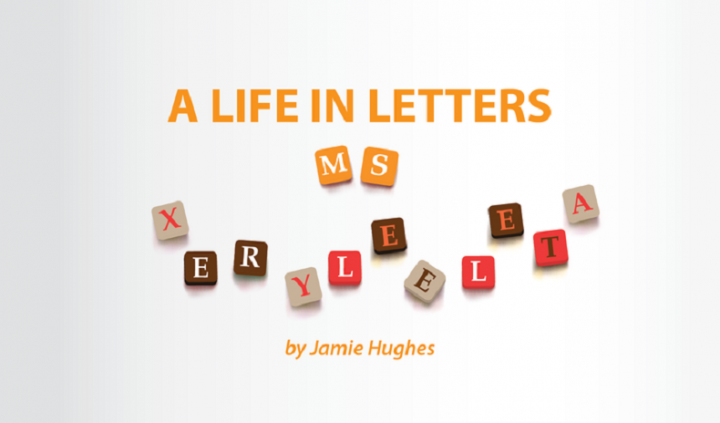The Unplayable Piano
Written by |


What do a broken-down, out-of-tune piano and multiple sclerosis have in common? Well, they’re both disorderly and confusing, to say the least. But there’s something else — they have the potential to bring about something positive.
I learned this from a podcast called “Hidden Brain,” specifically from an episode about the value of embracing chaos. In the second half of the episode, host Shankar Vedantam interviewed Tim Harford, author of “Messy: The Power of Disorder to Transform Our Lives.” They discussed many examples of moments in time when great art, inventions, or revelations only came about because of chaos or confusion. The most fascinating example Harford mentioned was that of “The Köln Concert.”
Keith Jarrett, the pianist, arrived to play an improvisational concert in Köln (Cologne), Germany, only to discover that the piano they’d secured for him was out of tune and tinny. Some of the velvet pads were worn down and didn’t strike the strings cleanly. The notes in the upper registers didn’t work. Neither did the pedals. But rather than give up on the concert, Jarrett did what he did best — he improvised. He stayed away from the higher register. He used more bass. He pounded on the keyboard. And in doing so, he created the best-selling solo jazz album of all time.
With less than optimum tools, Jarrett created something he never would have tried on a perfect instrument. Great art came not in spite of the handicap, but because of it. And this isn’t a revelation reserved only for the super-intelligent or gifted. Harford argues in his book that, like Jarrett, “very often we’re faced with the unplayable piano” in life but we can “produce something great out of it.”
After listening to this episode and the recording of “The Köln Concert” linked above, I started to ask myself some interesting questions. My body was working perfectly well up until the time I was diagnosed with MS at 25. I had never broken a bone. Never undergone surgery. I didn’t have a single allergy. My body was like a perfectly tuned Imperial Bösendorfer (the piano Jarrett was supposed to have that night). And then something broke.
A lesion appeared in my spine. A few more cropped up in my brain. My legs stopped working. I felt myself becoming part of W.B. Yeats’ poem “The Second Coming,” in which he states:
“Things fall apart; the centre cannot hold;
Mere anarchy is loosed upon the world,
The blood-dimmed tide is loosed, and everywhere
The ceremony of innocence is drowned;”
I was broken down in body, mind, and spirit. I didn’t see any way I could live with such chaos running around inside me.
But I did. I healed and started treatment to control my relapsing-remitting MS, and slowly, I started figuring out ways to do the things I wanted to do. Some of my plans went on unchanged. Others had to be dramatically altered. I’ve found that the limitations MS has placed on my life have made me a better problem solver. I’ve had to find workarounds I would have otherwise missed, and — here’s the killer thing — those revisions actually proved to be better than my original plan.
During the interview on “Hidden Brain,” Harford told Vedantam, “Sometimes bad news is just bad news. Sometimes an obstacle is just an obstacle. And there is no good side to be found. But very often when things go wrong, we need to stop and say, ‘Well, what could come out of this?'”
And I think that is the key to survival for MS patients, “unplayable pianos” that we are. Rather than throw up our hands and sit in a puddle of self-pity, we have to find the good, the unthought-of solution. This is something able-bodied people will never understand, something they will never be asked to face. For them, the tidy answers of life suffice.
Harford also said, “When everything is perfect, when everything is tidy, we’re on autopilot, and we’re not necessarily living in the moment. We’re not necessarily paying attention. And that’s a problem.” I think he’s correct. We humans crave perfection but dwell in imperfection, and it’s from that less than ideal place that the real business of living gets done.
***
Note: Multiple Sclerosis News Today is strictly a news and information website about the disease. It does not provide medical advice, diagnosis, or treatment. This content is not intended to be a substitute for professional medical advice, diagnosis, or treatment. Always seek the advice of your physician or other qualified health provider with any questions you may have regarding a medical condition. Never disregard professional medical advice or delay in seeking it because of something you have read on this website. The opinions expressed in this column are not those of Multiple Sclerosis News Today or its parent company, Bionews Services, and are intended to spark discussion about issues pertaining to multiple sclerosis.



Leanne Broughton
When I first started reading this I thought of parenthood. Plans are forever changing as with 2 children nothing is constant. Go with the flow. As they are now grown it is easier to go with my own flow. Still always changing.
Jamie Hughes
Girl, ain't THAT the John Brown truth!? I've had to make more (and bigger) adjustments since becoming a parent than I ever thought possible. We can and should learn from anything. Keep flowing, lady!
Caroline
Love the the last paragraph- Hartford statement.
Jamie Hughes
I just checked his book out from the library. Sounds like an interesting read! Thanks for the comment!
Marion Murray
How true and so relevant for the MS community
Jamie Hughes
Indeed and indeed. Thanks, Marion!
Paula Johnston
Thank-you !
Well said ?
Jamie Hughes
Thank you, Paula. I appreciate hearing when things strike a chord in people.
Karen
I'm a musician and also have MS. I like your analogy with the piano, though it would not have worked for all instruments, just as different approaches to rise above our illness do not work the same for all people.
The point, I suppose, is to be positive, take the easy with the hard, and just go on.
Let the music play, however it comes out of your instrument.
Karen
Kristin V. Johnson
I was diagnosed at 58 1/2, a year after I retired. Although I was actually relieved to have the answer to the "Why" and the "What" I'd been living with for 18 months, I thought "Well that sucks! There go my so called 'Golden Years'." I've spent the past 10 years finding "Workarounds" to every day problems, and let's face it, new problems crop up every day. Your analogy certainly hit a chord with me! Well done.
Dianña
Your Golden Years are still here waiting to be lived, not the way you expected but still here. You’ll become more Compassionate, you’ll learn how to give and receive. You’ll become either a better man or a mess. I think the latter.
Jamie Hughes
Did you mean to say “the former”? :-)
Pam L
Been there ,done that. Similar sx and dx and age. Just keep taking your meds ,exercise and hope for the best. I think thats the BEST you can do.
Pedro Garcia
Thats such a great attitude to have, but do I still have to use a walker?
Jamie Hughes
It's a tool, something to help you make the most of life. So yes, use it if you need to, and leave it be if you don't! Either way--get out there and live!
Marilyn
I'm so amazed with the strength you shared. I need help. since I've been diagnosed with MS in 2016 my family and friends have abandoned me. I'm alone and scared. I try everyday to be strong and keep pushing forward in healing I have trouble walking sometimes I'm glad I'm out of the wheelchair but I am Challenge and walking. when I'm sick and down I feel like giving up the fight. I need something to hold onto I need to consider hope and continue to try to find something to keep me going this article gave me inspiration however I need some type of guidance. do you have any suggestion? thank you so much for sharing that was Brave of you
Marilyn still hoping
Jamie Hughes
Marilyn, first off, thank you for your comment. Your bravery and positive attitude are AMAZING! You've only been dealing with MS for three years, and let me tell you, those are the HARDEST of them all. As time passes, you learn how to adapt. The best thing I can tell you to do if family and friends have fallen through is to find a support group. There are certainly MS support groups, and you can find them through your local chapter of the National MS Society. But I would also suggest looking around in local churches. There may be some who host support groups for chronic illness, but I know you'll find folks there who would love to come alongside you as friends. That's what Christ taught us to do! Many churches also have a team of deacons who are tasked with helping people in their community, providing things like financial and emotional support. You'd be stunned what good happens when God's people get involved. I'm praying for you, Marilyn. Please keep me updated!!!
Jan Stiens
Thank you for that great article. I have been an “unplayable piano” for many years. Your words spoke to me.
Jamie Hughes
So glad to hear the piece struck a chord with you (pun totally intended).
Thank you for telling me. It makes my day to know something I’ve written helps someone!
Kathleen Fulghum
Thank you so much for an uplifting article about conquering challenge. Keith Jarrett will be a topic for my afternoon chats online with pun fans who are also jazz musicians. The pun websites are also a blessing for someone who's pretty much housebound.
Your quote from the awe-inspiring W. B. Yeats poem was icing on the cake!
Jamie Hughes
Puns?! I LOVE puns! And it’s so nice to find another Yeats fan on here! You sound like you have a wide variety of fun friends!
Robin
Thank you so much for writing this column. I'm going to try to incorporate this perspective more in dealing with my MS.
Jamie Hughes
So glad it resonated!
madeline newton
what a wonderful article it does hit on us with MS we do find ways to get around some of our stops in our lives but come back up fighting in our own ways....this is so great so glad to have read such a wonderful article...thank you very much...
Jamie Hughes
Thank you so much for your kind words. My goodness! Color me happy!
Grady
During my formative years I frequently heard my dad say “nothing is so bad it doesn’t do some good”. I never really understood what exactly he was getting at until I was diagnosed. He and my mom were in my hospital room when I got the diagnosis. Guess what he said to me? Yep, that was it. M.S. has been a struggle but I can honestly say the good has outweighed the bad tenfold. It led me to a great career, good friends, a wonderful wife and a great appreciation for health.
Jamie Hughes
Your father sound like a brilliant, buoyant soul. We need more good eggs like him.
Diana Miller Spalding
Read about Terry Wahls. Eat real food. Go to church and Sunday School. Make friends. Be a blessing.
Jamie Hughes
I don't know who Terry Wahls is, but the rest of the advice sounds solid. :)